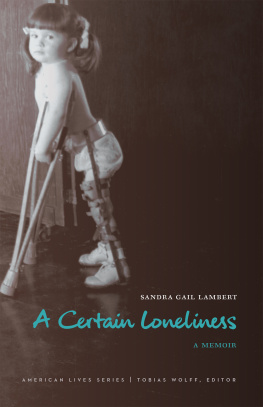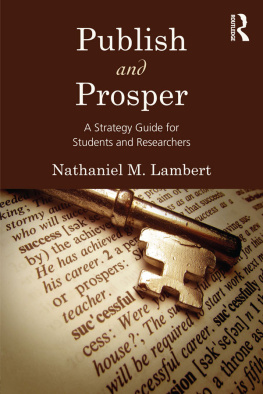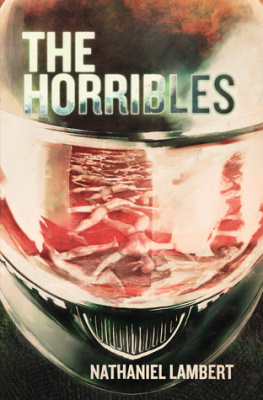Craig Lambert - Mind Over Water: Lessons on Life from the Art of Rowing
Here you can read online Craig Lambert - Mind Over Water: Lessons on Life from the Art of Rowing full text of the book (entire story) in english for free. Download pdf and epub, get meaning, cover and reviews about this ebook. year: 1999, publisher: HarperCollins, genre: Children. Description of the work, (preface) as well as reviews are available. Best literature library LitArk.com created for fans of good reading and offers a wide selection of genres:
Romance novel
Science fiction
Adventure
Detective
Science
History
Home and family
Prose
Art
Politics
Computer
Non-fiction
Religion
Business
Children
Humor
Choose a favorite category and find really read worthwhile books. Enjoy immersion in the world of imagination, feel the emotions of the characters or learn something new for yourself, make an fascinating discovery.
- Book:Mind Over Water: Lessons on Life from the Art of Rowing
- Author:
- Publisher:HarperCollins
- Genre:
- Year:1999
- Rating:3 / 5
- Favourites:Add to favourites
- Your mark:
- 60
- 1
- 2
- 3
- 4
- 5
Mind Over Water: Lessons on Life from the Art of Rowing: summary, description and annotation
We offer to read an annotation, description, summary or preface (depends on what the author of the book "Mind Over Water: Lessons on Life from the Art of Rowing" wrote himself). If you haven't found the necessary information about the book — write in the comments, we will try to find it.
In this wise and thrilling book, Criag Lambert turns rowingpersonal discipline, modern Olympic sport, grand collegiate traditioninto a metaphor for a vigorous and satisfying life.
Mind Over Water: Lessons on Life from the Art of Rowing — read online for free the complete book (whole text) full work
Below is the text of the book, divided by pages. System saving the place of the last page read, allows you to conveniently read the book "Mind Over Water: Lessons on Life from the Art of Rowing" online for free, without having to search again every time where you left off. Put a bookmark, and you can go to the page where you finished reading at any time.
Font size:
Interval:
Bookmark:
Lessons on Life from the
Art of Rowing
A Marc Jaffe Book
A MARINER BOOK
HOUGHTON MIFFLIN COMPANY
BOSTON NEW YORK
First Mariner Books edition 1999
Copyright 1998 by Craig Lambert
All rights reserved
For information about permission to reproduce selections
from this book, write to Permissions,
Houghton Mifflin Company, 215 Park Avenue South,
New York, New York 10003.
Library of Congress Cataloging-in-Publication Data
Lambert, Craig.
Mind over water : lessons on life from the art of
rowing / Craig Lambert,
p. cm.
"A Marc Jaffe book."
ISBN 0-395-85716-3
ISBN 0-618-00184-0 (pbk.)
1. Lambert, Craig. 2. RowersUnited StatesBiography.
3. Rowing. 4. Self-actualization (Psychology). I. Title.
XGV790 .92 .L35A3 1998
796.1'23'092dc21 [ B | 98-34450 CIP
Printed in the United States of America
Book design by Robert Overholtzer
7 8 9 EB 10 09
for L.W.L. and R.K.L.,
and to she who has inspired me
THE STEERSMAN 1
EQUINOX 55
THE POWERHOUSE STRETCH 121
In the long run men hit only what they aim at.
Therefore, though they should fail immediately,
they had better aim at something high.
THOREAU, Walden
I N THE DARKNESS, deep in silence, the lightsgreen, red, a few of whitesurge ahead, in the rhythm of breathing. They seem, in fact, to breathe their way forward, gathering force on the inhale, then gliding forward on the outward stroke. Against the dark water and the shore, whatever propels these lights is indistinct, but their graceful flow suggests swans.
Now one swan swims closer, and if this be waterfowl, it is ancient, prehistoric, fantastically long and narrow, a pterodactyl afloat. Its beak juts out ten feet or more, and the wingspan sweeps a tremendous arc, fifteen or sixteen feet across. Two wings beat together, a whoosh through the river water. As they emerge into air and recoil for another immense stroke, it becomes clear: these are no wings. They are oars.
As waves of dread wash through my gut, I watch the colored lights from the ramp that leads from the boathouse down to the dock. Soon, red and green beacons of my own, attached to the bow of my boat, will float beside these others, just inches above the river surface. I am about to become the heart and muscle of one of these sleek water birds. How, I wonder, did I get myself into this predicament?
It is 5:45 A.M. on an October morning in Boston, and both air and water are chilly. Already my hands ache with cold and I have yet to shove off from the dock; on the river, the frigid breeze will penetrate skin, flesh, and bone. That much is familiar: nothing more than intense, torturous pain. As a rower I am used to that. The terrifying thing is the athletic test confronting me: a double Head, something I have never attempted before and am not sure that I can even do, let alone do well. Performing well matters deeply, but today my first concern is staying alive out there. That, and the traffic.
The phrase double Head first caught my attention several years earlier, in a snatch of overheard conversation that crystallized the vast gap between my rowing practices and those of the top athletes in the sport. Two members of my boat club, Kurt Somerville and Tiff Wood, had been chatting after a row. Kurt, a downtown lawyer, is a tall, lanky oarsman who rowed at Dartmouth and then made the 1980 U.S. Olympic team, those unlucky athletes Jimmy Carter made into spectators. Kurt's nickname is "Wedge." He explains: "a wedge is the simplest tool."
Tiff Wood is another rowing tool; in college, his nickname was "the Hammer." Actually, many oarsmen have been called hammers, crew slang for rowers who lack finesse. Like ringer, the term hammer blends censure and praise: although hammers are crude implements, they can, of course, come in very handy. Tiff's untamed technique didn't stop him from becoming one of the great oarsmen of his era. After a spectacular career at Harvard, where his crews never lost a race, Tiff made the 1976, 1980, and 1984 U.S. Olympic teams and became one of the most famous names in rowing.
As the two Olympians talked, I listened in disbelief as Kurt uttered four innocent-sounding words: "Tiff: Saturdaydouble Head?"
This simple phrase stunned me. Kurt was casually proposing that, on Saturday, he and Tiff go out in their single sculls and row a double Head piece together. To my ears, he might as well have said, "Tiff: Saturday[[[mdash.gif]]]climb Mount Everest?" On the Charles River, to row "a Head piece" means to row the full three-mile course of the Head of the Charles Regatta, a demanding endeavor that can take as little as fourteen minutes in an eight-oared boat or seventeen minutes in a single scull. It can also take well over twenty minutes. That doesn't sound so terribly long, but think of it as, say, running four or five consecutive four-minute miles.
Actually, it might be even tougher. Unlike running, rowing calls on every major muscle group in the bodylegs, buttocks, back, abdomen, shoulders, armsand pits them against resistance. Activating so much muscle tissue at once generates a tremendous demand for oxygen that sets your lungs on fire. Listening to Kurt and Tiff, I recalled my own scorched lungs while racing in the Head of the Charles, one of the most demanding things I had ever done. Now a double Heada six-mile monster, two Head pieces back-to-backwas something I'd never heard of anyone doing. It seemed, in fact, an impossible feat. Double Head? I thought. Sure you are.
Hence my dread. As the boat lights glide by on this cool, dark Tuesday morning, I myself am about to attempt the impossible: a double Head. The Head of the Charles Regatta has accepted a few dozen of us from Cambridge Boat Club as competitors. The race is about three weeks away, and fifteen of us who are either taking it more seriously than the others, or desperately seizing all possible advantages, are out here preparing for the big test.
The Head of the Charles is the world's largest regatta; this year it will involve 16 events, 800 boats, 4,000 athletes, and perhaps more than 250,000 spectators. Rowers all over North America are preparing for this race, as are others in the British Isles, Europe, South America, Australia, and New Zealand. Many are no doubt rowing on their own bodies of water at this very moment. Here at Cambridge Boat Club we have been training for the Head for months and in the last few weeks have cranked up our intensity. Most of us are working out at least six days a week, just as we have all year long, but now we are really leaning into it.
I am in the best shape of my life, but for conditioning I am nowhere near the top of this Cambridge pack. Unfortunately, I'm not near the top on technique, size, strength, or experience, either. In a nutshell, I am dog-slow, one of the least competitive scullers of our training group.
Still, it is something to be rowing in the Head of the Charles at all. Of the millions of rowers in the world, only a small fraction have ever competed in this race, the pinnacle of the autumn rowing calendar. I am a masters rower, officially defined as anyone over age thirty. I have comfortably cleared that hurdle. As a forty-seven-year-old sculler, I am one of fifty entrants in the men's Senior Masters Single event, for oarsmen from forty through forty-nine. Single refers to the type of boat, a racing shell rowed by one person. Simply put, I am competing at the lowest end of the highest end of the sport.
In preparing for the Head, our Cambridge cohort is getting help from Gordon Hamilton, a rowing coach retained by the club to coach its advanced and competitive scullers. The Hamiltons are a true rowing family; Gordon's brother Chuck has coached crew at Mount Hermon School in western Massachusetts since 1970, and his eldest brother, Henry, is a well-known oarsman who runs his own sculling camp each summer. All three belong to Cambridge Boat Club.
Next pageFont size:
Interval:
Bookmark:
Similar books «Mind Over Water: Lessons on Life from the Art of Rowing»
Look at similar books to Mind Over Water: Lessons on Life from the Art of Rowing. We have selected literature similar in name and meaning in the hope of providing readers with more options to find new, interesting, not yet read works.
Discussion, reviews of the book Mind Over Water: Lessons on Life from the Art of Rowing and just readers' own opinions. Leave your comments, write what you think about the work, its meaning or the main characters. Specify what exactly you liked and what you didn't like, and why you think so.












